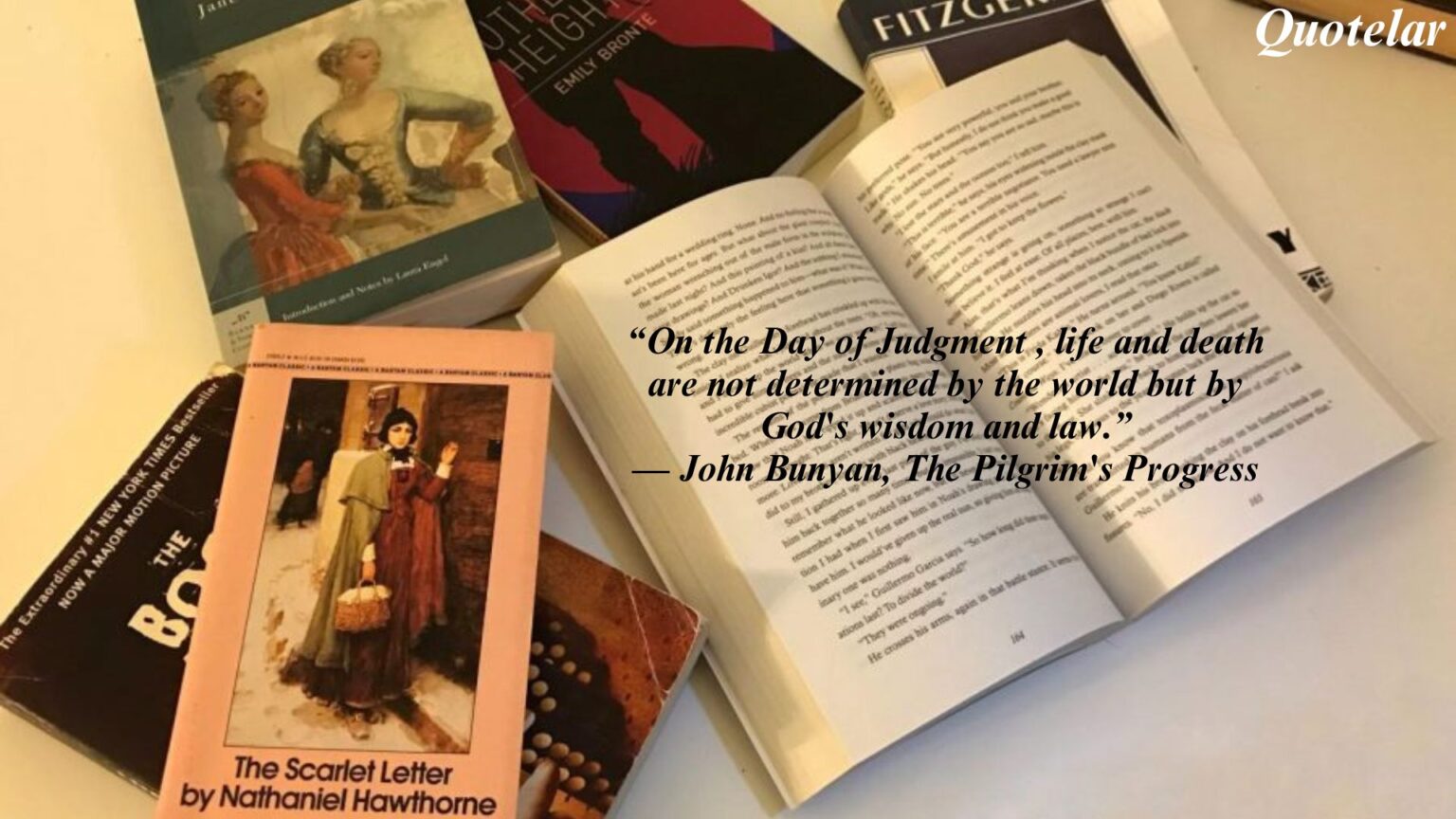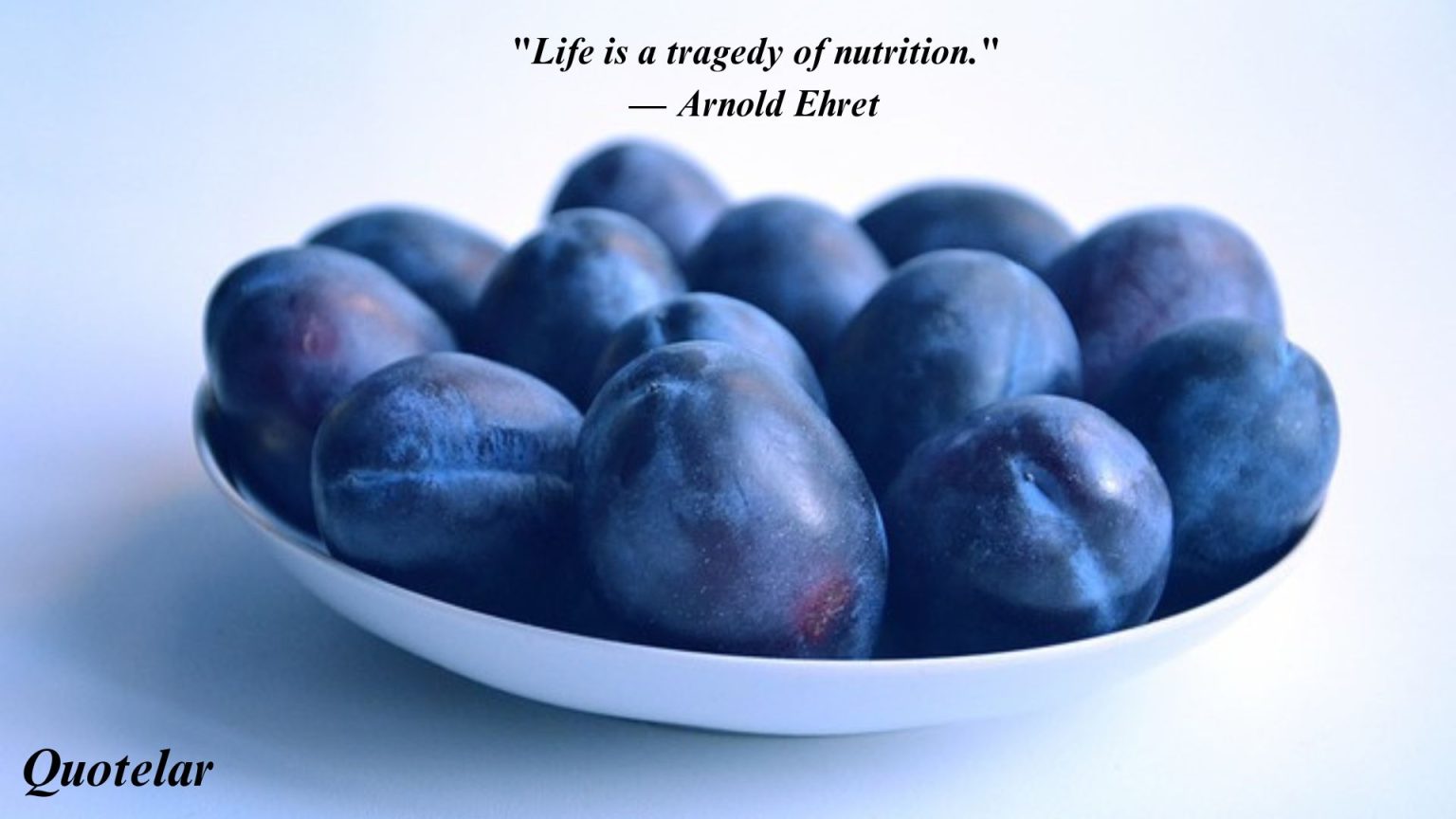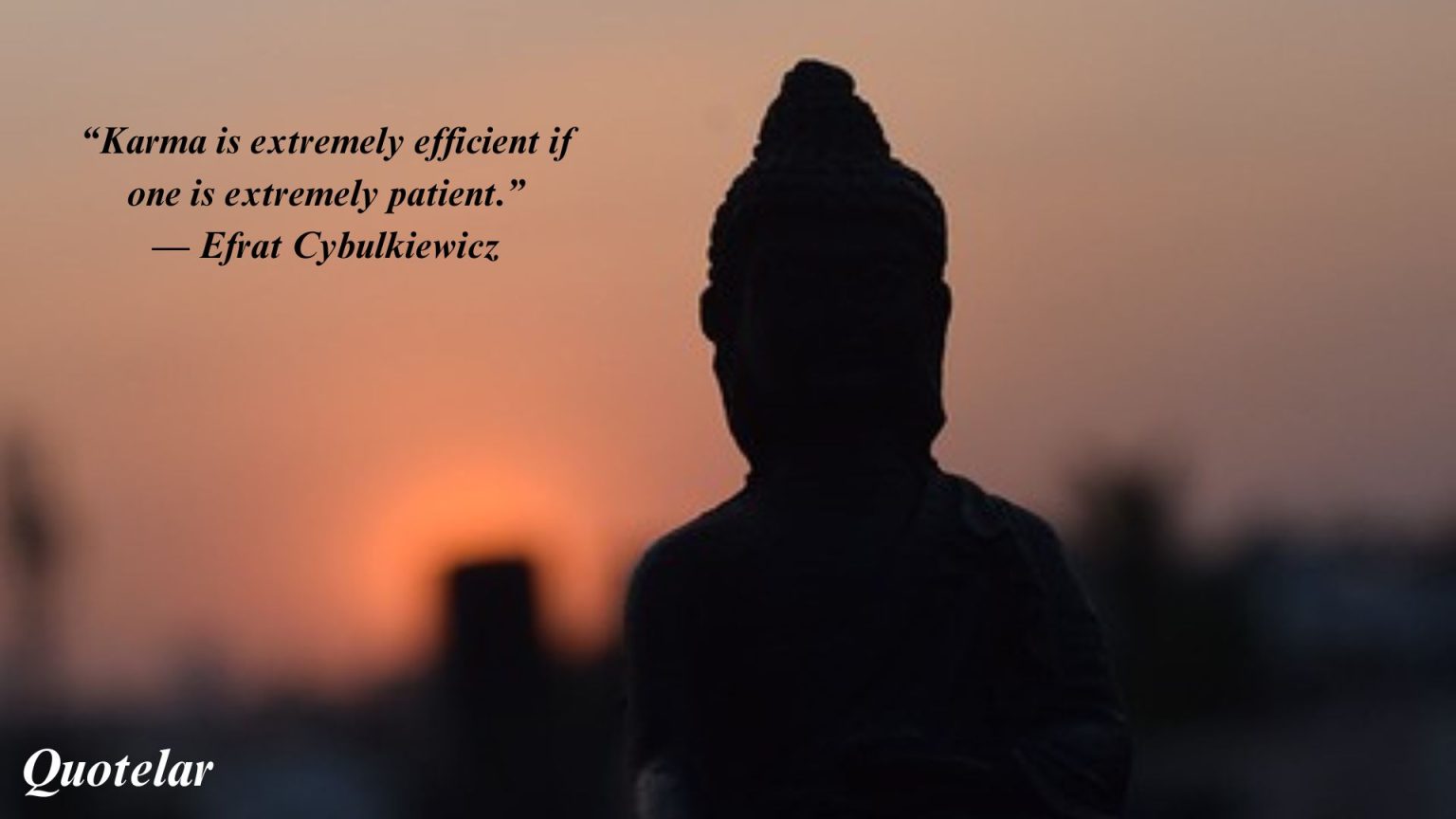Classical literature refers to the body of literature from ancient civilizations, particularly those of Greece and Rome, but it can also include works from other ancient cultures like Egypt and Mesopotamia. These works are typically considered timeless and have had a profound influence on literature, philosophy, and culture throughout history. They often explore universal themes such as love, fate, honor, and the human condition, and they continue to be studied and appreciated for their artistic and intellectual merit. Some of the most well-known classical literary works include Homer’s “Iliad” and “Odyssey,” Virgil’s “Aeneid,” and the plays of Sophocles, Euripides, and Aristophanes.
Classical Literature Quotes
1. “Young people get the foolish idea that what is new for them must be new for everybody else too. No matter how unconventional they get, they’re just repeating what others before them have done.”
— Yukio Mishima, After the Banquet
2. “You are a wonderful creation. You know more than you think you know, just as you know less than you want to know.”
— Oscar Wilde, The Picture of Dorian Gray
3. “There is one thing, Emma, which a man can always do if he chooses, and that is his duty; not by manoeuvring and finessing, but by vigour and resolution. – Mr. Knightley”
— Jane Austen, Emma
4. “When you reread a classic, you do not see more in the book than you did before; you see more in you than there was before.”
— Cliff Fadiman
5. “Seaward ho! Hang the treasure! It’s the glory of the sea that has turned my head.”
— Robert Louis Stevenson, Treasure Island
6. “At the moment when her eyes closed, when all feeling vanished in her, she thought that she felt a touch of fire imprinted on her lips, a kiss more burning than the red-hot iron of the executioner.”
— Victor Hugo, The Hunchback of Notre-Dame
7. “Once upon a time, they say, there was a girl…there was a boy…there was a person who was in trouble. And this is what she did…and what he did…and how they learned to survive it. This is what they did…and why one failed…and why another triumphed in the end. And I know that it’s true, because I danced at their wedding and drank their very best wine.”
— Terri Windling
8. “Say, you told me you thought Les Miserables was the greatest novel ever written. I think Vanity Fair is the greatest. Let’s fight. – Joe Willard”
— Maud Hart Lovelace, Betsy and Joe
9. “Realize your youth while you have it. Don’t squander the gold of your days, listening to the tedious, trying to improve the hopeless failure, or giving away your life to the ignorant, the common, and the vulgar. These are the sickly aims, the false ideals, of our age. Live! Live the wonderful life that is in you! Let nothing be lost upon you. Be always searching for new sensations. Be afraid of nothing”
— Oscar Wilde
10. “Reading Dostoevsky’s The Brothers Karamazov is comparable to pushing a beautiful grand piano up a very steep hill.”
— Kevin Ansbro
11. “. . . a statement that is repugnant to one’s beliefs can be as true as one that is pleasurable.”
— Taylor Caldwell, Dear and Glorious Physician
12. “The author says one character’s definition of a classic is any book he’d heard of before he was thirty.”
— Sinclair Lewis, It Can’t Happen Here
13. “So ran the speech. Burdened and sick at heart,
He feigned hope in his look, and inwardly
Contained his anguish. […]
Aeneas, more than any, secretly
Mourned for them all”
— Virgil, The Aeneid
14. “Classics aren’t books that are read for pleasure. Classics are books that are imposed on unwilling students, books that are subjected to analyses of “levels of significance” and other blatt, books that are dead.”
― Alexei Panshin, Rite of Passage
15. “Folks were doin’ a lot of runnin’ that night.”
— Harper Lee, To Kill a Mockingbird
16. “It was against my principles and all, but I was feeling so depressed I didn’t even think. That’s the whole trouble. When you’re feeling very depressed, you can’t even think.”
— J.D. Salinger, The Catcher in the Rye
17. “On the Day of Judgment , life and death are not determined by the world but by God’s wisdom and law.”
— John Bunyan, The Pilgrim’s Progress
18. “I wasn’t sleepy or anything, but I was feeling sort of lousy. Depressed and all. I almost wished I was dead.”
— J.D. Salinger, The Catcher in the Rye
19. “I didn’t care what kind of a job it was, though. Just so people didn’t know me and I didn’t know anybody.”
— J.D. Salinger, The Catcher in the Rye
20. “Upon the publication of Goethe’s epic drama, the Faustian legend had reached an almost unapproachable zenith. Although many failed to appreciate, or indeed, to understand this magnum opus in its entirety, from this point onward his drama was the rule by which all other Faust adaptations were measured. Goethe had eclipsed the earlier legends and became the undisputed authority on the subject of Faust in the eyes of the new Romantic generation. To deviate from his path would be nothing short of blasphemy.”
— E.A. Bucchianeri, Faust: My Soul be Damned for the World, Vol. 2
21. “He told us we should always pray to God- talk to Him and all- wherever we were. He told us to think of Jesus as our buddy and all. He said he talked to Jesus all the time. Even when he was driving his car.”
— J.D. Salinger, The Catcher in the Rye
22. “If he was so goddam stupid not to realize it was Saturday night and everybody was out or asleep or home for the week end, I wasn’t going to break my neck telling him.”
— J.D. Salinger, The Catcher in the Rye
23. “To each his fate, shaped by passion or sentiment.”
— Joseph Conrad, Nostromo
24. “A man betrayed is a man destroyed.”
— Joseph Conrad, Nostromo
25. “A man possessed of passion is not a bankrupt in life.”
— Joseph Conrad, Nostromo
26. “Thats what makes a view so sad, and so beautiful. It’ll be there when we’re not.”
— Virginia Woolf, Between the Acts
27. “There must be something in books, things we can’t imagine, to make a woman stay in a burning house; there must be something there. You don’t stay for nothing.”
— Ray Bradbury, Farenheit 451
28. “She felt as if she had stabbed her dearest friend, and when he left her without a look behind him, she knew that the boy Laurie never would come again.”
— Louisa May Alcott , Good Wives
29. “If life be a war, it seemed my destiny to conduct it singlehanded.”
— Charlotte Bronte, Villete
30. “That aching feeling of loneliness which always overcomes us when someone dear to us surrenders to a daydream in which we have no place.”
— NABOKOV, Mary, Mary
31. “I know what you hate. You hate something in them you can’t understand. You don’t hate their evil. You have the good in them you can’t get at. I wonder what you want, what final thing.”
— John Steinbeck, East of Eden
32. “If I am a princess in rags and tatters, I can be a princess inside. It would be easy to be a princess if I were dressed in cloth of gold, but it is a great deal more of a triumph to be one all the time when no one knows it.”- Page. 164”
— Frances Hodgson Burnett, A Little Princess
33. “Keangkuhan terkait dengan anggapan kita terhadap diri kita sendiri, sedangkan kesombongan terkait dengan bagaimana kita menginginkan orang lain berpendapat tentang diri kita.”__Hal.33”
— Jane Austen, Pride and Prejudice
34. “And the ashes blew towards us with the salt wind from the sea.”
— Daphne du Maurier, Rebeca
35. “The grass grows over the graves, time overgrows the pain. The wind blew away the traces of those who had departed; time blows away the bloody pain and the memory of those who did not live to see their dear ones again—and will not live, for brief is human life, and not for long is any of us granted to tread the grass.”
— Mikhail Sholokhov, And Quiet Flows the Don
36. “Only in the conduct of our action can we find the sense of mastery over the Fates.”
— Joseph Conrad, Nostromo
37. “Let heaven and men and devils, let them all,
All, all, cry shame against me, yet I’ll speak.”
— William Shakespeare
38. “All the world is made of faith, and trust and pixie dust.”
— James Barrie, PETER PAN
39. “When he thought of her, he could vividly picture all of her to himself.”
— Leo Tolstoy, Anna Karenina
40. “But what was always striking in her, like something unexpected, was the look in her eyes – meek, calm and truthful – and especially her smile which always transported Levin into a magic world where he felt softened and moved to tenderness, as he could remember himself being on rare days in his early childhood.”
— Leo Tolstoy, Anna Karenina
41. “You’re a very wholesome man. That is your virtue and your defect. You have a wholesome character, and you want all of life to be made up of wholesome phenomena, but that doesn’t happen. So you despise the activity of public service because you want things to always correspond to their aim, and that doesn’t happen. You also want the activity of the individual man always to have an aim, that love and family life always be one. And that doesn’t happen. All the variety, all the charm, all the beauty of life are made up of light and shade.”
— Leo Tolstoy, Anna Karenina
42. “The thing is, if you get very depressed about something, it’s hard as hell to swallow.”
— J.D. Salinger, The Catcher in the Rye
43. “I felt purged and holy and ready for a new life.”
— Sylvia Plath, The Bell Jar: A Novel Classic
44. “Look, sir. Don’t worry about me,’ I said. ‘I mean it. I’ll be all right. I’m just going through a phase right now. Everybody goes through phases and all, don’t they?”
— J.D. Salinger, The Catcher in the Rye
45. “It is dreadful that one cannot tear our the past by the roots. We cannot tear it out but we can hide the memory of it.”
— Leo Tolstoy, Anna Karenina
46. “I’d read it already, but I wanted to read certain parts over again.”
— J.D. Salinger, The Catcher in the Rye
47. “I think that one of these days,’ he said, ‘you’re going to have to find out where you want to go. And then you’ve got to start going there. But immediately. You can’t afford to lose a minute. Not you.”
— J.D. Salinger, The Catcher in the Rye
48. “I’m afraid your principles on some points are eccentric.”
— Charlotte Brontë, Jane Eyre
49. “And it was then he spoke about the broken Link – and about the greatest books in the world – that in all their different ways, they were only saying over and over again one thing thousands of times. Just this thing – ‘Hate not, Fear not, Love.’ And he said that was Order. And when it was disturbed, suffering came – poverty and misery and catastrophe and wars.”
— Frances Hodgson Burnett, The Lost Prince
50. “Isn’t it wonderful to be able to invite Anton Chekhov into your home?”
— Kevin Ansbro
51. “The mind will ever be unstable that has only prejudices to rest on, and the current will run with destructive fury when there are no barriers to break its force.”
— Mary Wollstonecraft, A Vindication Of The Rights Of Women
52. “Then I started wondering like a bastard what the one sitting next to me, that taught English, thought about being a nun and all, when she read certain books for English. Books not necessarily with a lot of sexy stuff in them, but books with lovers and all in them.”
— J.D. Salinger, The Catcher in the Rye
53. “Sometimes one is guided by what they say of themselves, and very frequently bu what other people say of them, without giving oneself time to deliberate and judge.”
— Jane Austen, Sense and Sensibility
54. “Most people in this world seem to live “in character”; they have a beginning, a middle, and an end, and the three are congruous one with another and true to the roles of their type.”
— H.G. Wells, Tono-Bungay
55. “…he could find no better relief to his feelings than by giving his housekeeper directions that every possible attention might be paid to the sick lady and her sister.”
— Jane Austen, Pride and Prejudice
56. “He’s poodlishly ridiculous.”
— Johann Wolfgang von Goethe, Faust
57. “Like Nietzsche once said: ‘And those who were seen dancing were thought to be insane by those who could not hear the music.’ We writers were always like that. The damned, dancing like fools around the world – feeling everything around as if it were an ocean wave.”
— W.M Angel, Atlas Loved
58. “Mrs. Darling first heard of Peter when she was tidying up her children’s minds. It is the nightly custom of every good mother after her children are asleep to rummage in their minds and put things straight for next morning, repacking into their proper places the many articles that have wandered during the day… When you wake in the morning, the naughtiness and evil passions with which you went to bed have been folded up small and placed at the bottom of your mind and on the tp, beautifully aired, are spread out your prettier thoughts, ready for you to put on.”
— J. M. Barrie, Peter pan
59. “Completely, Perfectly, Incandescently Happy”
— Pride and Prejudice – Jane Austen








